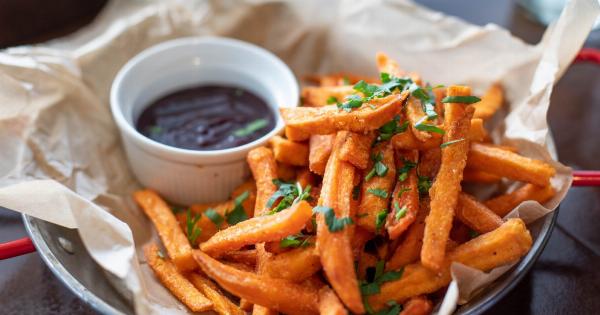Obesity in humans is now recognized as a global epidemic with the World Health Organization reporting that over 1.9 billion adults are overweight and of these, over 650 million are obese.
There are several reasons why people become obese, including poor food choices, sedentary lifestyles, stress and genetics, but the link between consuming rough food and obesity is one that is not often talked about. On the surface, it may seem counterintuitive that consuming rough food, which is generally considered healthier, could lead to obesity. However, several hidden factors can contribute to an increase in weight when consuming rough food.
This article will explore these hidden factors and explain the link between rough food and obesity.
Rough Food may be High in Calories
One of the main reasons why consuming rough food can lead to obesity is that it may be high in calories. Just because a food is considered “healthy” doesn’t mean that it is low in calories.
For example, nuts and seeds are widely known to be a good source of healthy fats and protein, but they are also high in calories. Consuming large amounts of these foods on a regular basis can easily lead to weight gain, especially if an individual is not burning off these calories through physical activity.
Rough Food can be High in Carbohydrates
In addition to being high in calories, rough food can also be high in carbohydrates. Whole grains, which are often touted as a healthy option, can be high in carbs, which can lead to weight gain.
In fact, some studies have shown that consuming too many grains can be just as detrimental to weight loss as consuming refined grains. Most grains contain a type of carbohydrate called amylose, which is difficult for the body to digest. The undigested carbohydrate can lead to bloating and constipation, which can make it harder for individuals to lose weight.
Rough Food can be Processed
Another factor that can contribute to weight gain when consuming rough food is that it may actually be highly processed. While a food may be marketed as “natural” or “organic,” it can still be processed.
For example, many granola bars and energy bars are marketed as healthy snacks, but they are often loaded with sugar and other additives. These foods can be highly caloric and can lead to weight gain if consumed regularly.
Rough Food can be High in Fat
Like carbohydrates, fats are a necessary part of a healthy diet, but consuming too much fat can lead to weight gain. Many rough foods, such as avocado and coconut, are high in healthy fats, but they may still be high in calories.
Consuming large amounts of high-fat foods, even if they are considered healthy, can lead to weight gain if an individual is not burning off the excess calories.
Rough Food can be High in Sugar
Sugar is often hidden in so-called “healthy” foods. For example, many smoothie bowls and other breakfast items are loaded with fruit, which is high in sugar.
Consuming too much sugar can lead to weight gain, even if the sugar is coming from natural sources like fruit. In addition, sugar can cause inflammation in the body, which can make it harder to lose weight and keep it off in the long term.
Rough Food can be High in Sodium
Sodium is another factor that can contribute to weight gain when consuming rough food. Many healthy foods, such as nuts and seeds, are naturally high in sodium.
However, consuming too much sodium can cause the body to retain water, which can lead to bloating and weight gain. In addition, high sodium intake can be detrimental to overall health, contributing to hypertension and other health problems over time.
Consuming Rough Food can Lead to Overeating
Another hidden factor that can contribute to weight gain when consuming rough food is that it may not be as satiating as other types of food.
For example, a salad may be considered a healthy option, but if it’s not filling, an individual may end up consuming more calories overall in an attempt to feel full. This can lead to overeating and weight gain over time.
It’s important to consume rough foods in moderation and to make sure that they are balanced with other types of foods, such as protein and healthy fats, in order to feel satiated and avoid overeating.
Rough Food can be Expensive
Finally, the cost of rough food may be a factor that contributes to weight gain. While there are many rough foods that are inexpensive, such as beans and lentils, many others can be expensive.
For example, fresh fruits and vegetables can be more expensive than processed and packaged foods. This can make it difficult for individuals with limited financial resources to consume a healthy, balanced diet, potentially leading to weight gain over time.
Conclusion
In conclusion, while rough foods are generally considered healthy and beneficial to overall health, there are hidden factors that can contribute to weight gain.
These factors include the calorie content of the food, the amount of carbohydrates, fat, sugar, and sodium, the level of processing, and the satiating power of the food. It’s important to consume rough foods in moderation and to ensure that they are balanced with other types of foods in order to avoid overeating and subsequent weight gain.




























